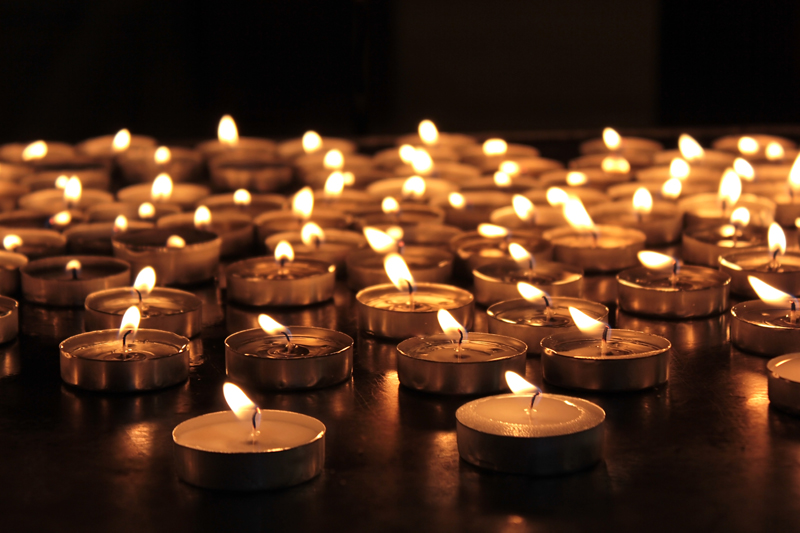Your Ancestry and Wicca

You might be wondering if your ancestry matters when it comes to practicing Wicca. After all, it is a religion that originated in Britain. Its founder Gerald Gardner and its first practitioners were culturally British. Several of its most important holidays, such as Samhain and Beltane, originated with the ancient Celts. Others, such as Ostara, are Anglo Saxon in origin.
Most Wiccan traditions feel primarily Celtic with some Anglo Saxon overlay. Most significantly, many of the gods and goddesses associated with Wicca are Celtic or Anglo Saxon. For all these reasons, many people like me whose ancestry lies in the British Isles find Wicca personally meaningful.
Because Wicca originated in Britain, British history is also Wiccan history. To give some background, the Celtic tribes were the primary cultural influence in Britain before the time of the Roman Empire. Their descendants can trace some or all of their lineage back to Ireland and British regions such as Cornwall, the Isle of Man, Scotland, and Wales. The Anglo Saxons, who settled Britain just after the Roman occupation, gradually became a dominant force over the Celts. Anglo Saxons are among the Germanic peoples who once shared similar gods, language, and culture. This grouping also includes Scandinavians (Norwegians, Swedes, and Danes), the Germans and Austrians, and the Dutch.
So, do you have to be any of those ethnicities that I just mentioned to be a real Wiccan? Not at all. We are drawn to specific spiritual paths because something inside us responds to those particular ways of interacting with the universe. These are matters of the soul that transcend the ethnic classifications of the physical body. For example, no one has to be of Indian descent to practice Buddhism, even though Buddhism originated in India. Likewise, no one is required to be of Anglo Saxon or Celtic descent to practice Wicca.
I personally find it meaningful to connect with a faith similar to that which I think my ancestors may have practiced, but I believe that a person’s ancestry is only one variable among many considerations that go into choosing a spiritual path, and not an important one. More significant is the possibility that you may have been chosen by the God and Goddess, if you are drawn to Wicca. Who are we to question why the deities have reached out and gathered us in?
Wicca is a syncretic religion, which means it borrows and melds traditions from many different sources. Some Wiccans believe in eastern concepts such as karma and reincarnation. Others incorporate into their spiritual practice various Judeo-Christian influences such as angels, and others look to New Age concepts such as channeling of spirits. If the Wiccan religion itself is a melting pot of different influences, then it seems natural that Wiccans would come from many different ethnic and cultural backgrounds.
Most Wiccan traditions feel primarily Celtic with some Anglo Saxon overlay. Most significantly, many of the gods and goddesses associated with Wicca are Celtic or Anglo Saxon. For all these reasons, many people like me whose ancestry lies in the British Isles find Wicca personally meaningful.
Because Wicca originated in Britain, British history is also Wiccan history. To give some background, the Celtic tribes were the primary cultural influence in Britain before the time of the Roman Empire. Their descendants can trace some or all of their lineage back to Ireland and British regions such as Cornwall, the Isle of Man, Scotland, and Wales. The Anglo Saxons, who settled Britain just after the Roman occupation, gradually became a dominant force over the Celts. Anglo Saxons are among the Germanic peoples who once shared similar gods, language, and culture. This grouping also includes Scandinavians (Norwegians, Swedes, and Danes), the Germans and Austrians, and the Dutch.
So, do you have to be any of those ethnicities that I just mentioned to be a real Wiccan? Not at all. We are drawn to specific spiritual paths because something inside us responds to those particular ways of interacting with the universe. These are matters of the soul that transcend the ethnic classifications of the physical body. For example, no one has to be of Indian descent to practice Buddhism, even though Buddhism originated in India. Likewise, no one is required to be of Anglo Saxon or Celtic descent to practice Wicca.
I personally find it meaningful to connect with a faith similar to that which I think my ancestors may have practiced, but I believe that a person’s ancestry is only one variable among many considerations that go into choosing a spiritual path, and not an important one. More significant is the possibility that you may have been chosen by the God and Goddess, if you are drawn to Wicca. Who are we to question why the deities have reached out and gathered us in?
Wicca is a syncretic religion, which means it borrows and melds traditions from many different sources. Some Wiccans believe in eastern concepts such as karma and reincarnation. Others incorporate into their spiritual practice various Judeo-Christian influences such as angels, and others look to New Age concepts such as channeling of spirits. If the Wiccan religion itself is a melting pot of different influences, then it seems natural that Wiccans would come from many different ethnic and cultural backgrounds.
You Should Also Read:
History and Traditions
Being Wicca

Related Articles
Editor's Picks Articles
Top Ten Articles
Previous Features
Site Map
Content copyright © 2023 by Ro Longstreet. All rights reserved.
This content was written by Ro Longstreet. If you wish to use this content in any manner, you need written permission. Contact Ro Longstreet for details.



